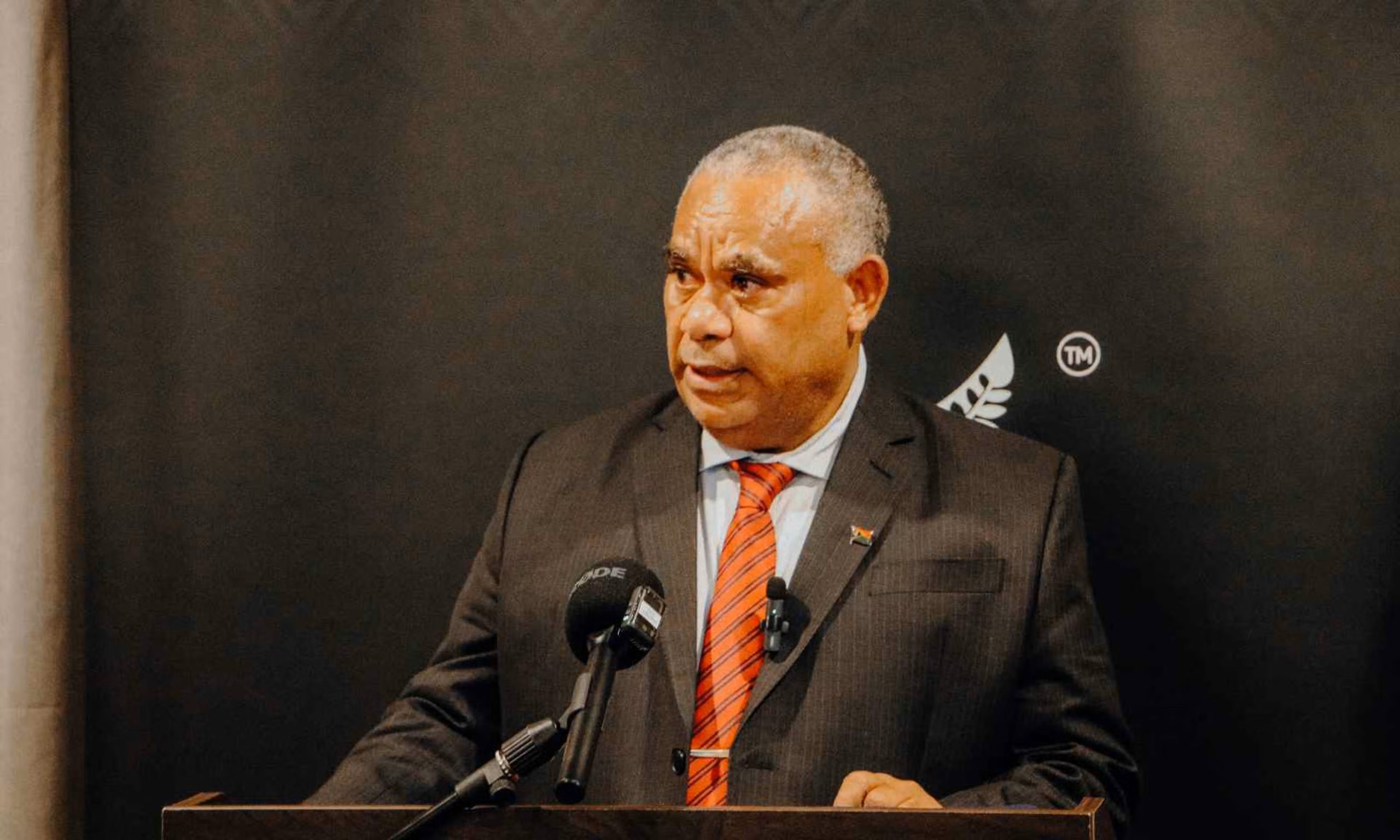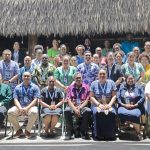Vanuatu’s Prime Minister, Jotham Napat, has delivered a blunt message over climate change: “There is no Planet B. It’s about our survival.”
During a joint press conference with New Zealand’s deputy Prime Minister, Winston Peters, in Port Vila on Thursday, Napat called on countries to reconsider actions that undermine global climate agreements.
“It’s about our survival as Pacific Island countries, and we will continue to advocate that. We will never stop,” he says.
His comments come in the wake of U. President Donald Trump’s withdrawal from the Paris Agreement, which occurred shortly before Napat took office.
Reflecting on his almost two-month tenure, Napat expressed satisfaction with the progress made so far.
“One of our outstanding works within the 100-day plan is to see the main CBD that has been severely affected by the earthquake reopen.
“It’s pleasing to know that the CBD is now open and the government is really focusing on how to build back better.
“We have a 100-day plan and so far we have achieved almost about 60 percent.”
The island nation was struck by a 7.3 magnitude earthquake a week before Christmas last year.
During Peters’ visit to Vanuatu this week, he announced a further $10 million(US$5.92 million) to support recovery efforts and pledged to be the lead donor for a renewable energy project on the islands of Efate and Tanna.
The project, in collaboration with France, will focus on solar photovoltaic energy and battery storage systems, which are expected to reduce fuel import costs.
“We’re pleased that France is joining us,” Peters says. “I don’t think enough of these countries have been approached to help, and that’s what we’ve got to do.”
New Zealand has contributed a total of $13.5m (US$8 million) towards Vanuatu’s earthquake response and recovery efforts, including $3.85m (US$2.28 million) for immediate response efforts.
Peters says Vanuatu is the final stop of his first Pacific Mission for 2025, highlighting the importance of the visit amid “geostrategic circumstances and the world economy”.
“The reality is we are here with our eyes wide open, looking at the geostrategic circumstances and the world economy as it is now, and never has things been so critical in terms of New Zealand’s engagement, our contribution to the stability, economically, socially, and politically we’re talking about.”
Peters dismissed speculation that this Pacific mission might be his last, saying, “Never jump to a judgement like that. There’s a long way to go yet.
“Something might happen next week that requires our attention somewhere else in the Pacific, and if we have to do that, we’ll do it,” he said.













